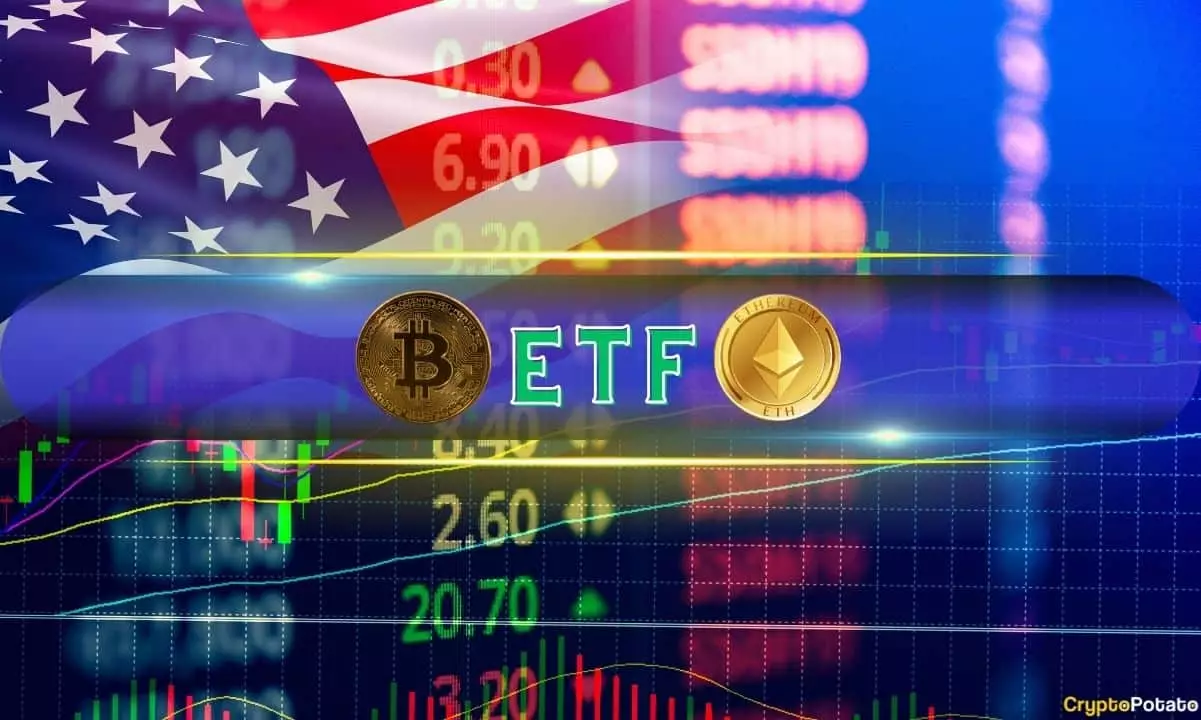The landscape of investment is evolving swiftly, particularly with the advent and growing popularity of cryptocurrency-related exchange-traded funds (ETFs). As of 2024, nearly 40% of the top 50 best-performing ETFs were cryptocurrency-focused, signaling a monumental shift towards digital asset investments. This trend is not merely a fleeting moment but reflects a significant change in market dynamics that investors are increasingly recognizing.
The Surge in Cryptocurrency ETFs
According to ETF expert Nate Geraci, a substantial number of funds launched this year, 19 to be precise, are directly involved with cryptocurrencies such as Bitcoin (BTC) and Ethereum (ETH), as well as corporations with significant crypto assets, like MicroStrategy. This influx is remarkable given that these 19 funds comprise 12 of the top 20 products launched within 2024. This highlights an undeniable pivot in investor interest – a trend that is likely to redefine traditional investment frameworks.
The inflows these ETFs are experiencing are staggering. For instance, BlackRock’s iShares Bitcoin Trust (IBIT) led the charge, amassing an astonishing $24.7 billion year-to-date (YTD). This exceptional figure underscores both the confidence in Bitcoin as a flagship cryptocurrency and the growing acceptance of crypto assets in the broader financial ecosystem. Following closely behind, Fidelity’s Wise Origin Bitcoin Fund (FBTC) and the ARK 21Shares ARKB fund also showcased impressive performances, indicating that institutional investors have begun to view cryptocurrencies as serious investment vehicles.
Fund Performance Against Traditional Avenues
Examining the performance metrics reveals the stark contrast between cryptocurrency-focused funds and traditional investment products. For instance, while the PGIM Ultra Short Municipal Bond ETF placed fourth with approximately $2.47 billion in inflows, it pales in comparison with the incredible sums garnered by crypto ETFs. Bitwise’s BITB also managed to crack the top five with $2.3 billion, establishing a new benchmark for the kind of performance that digital assets can achieve when they resonate with investors.
Moreover, the debut of Ethereum-related ETFs like BlackRock’s iShares Ethereum Trust (ETHA), which accumulated over $1.4 billion since its launch, testifies to the growing interest in the second-largest cryptocurrency by market cap. Other Ethereum-focused funds such as Fidelity’s Ethereum Trust (FETH) have joined the ranks, indicating that the Ethereum ecosystem continues to capture investor attention despite its relative novelty in the financial sphere.
An interesting angle in this discussion involves companies with significant cryptocurrency holdings, particularly MicroStrategy. As the largest corporate holder of Bitcoin, with over 279,000 BTC, MicroStrategy plays a critical role in strategic cryptocurrency investments. Their linked funds, such as the YieldMax MSTR Option Income Strategy and the T-Rex 2X Long MSTR Daily Target ETF, have also seen considerable success, which further validates the financial community’s growing reliance on crypto-linked products.
The influence of a corporate entity like MicroStrategy speaks volumes about the potential of cryptocurrencies to become a staple in investment portfolios. This reality may compel other corporations to consider adopting similar strategies, potentially leading to a more widespread acceptance of digital assets across the corporate world.
The ascension of cryptocurrency ETFs is not a mere trend, but a potential revolution in investment practices. As these funds continue to gain traction in 2024, it raises important questions about the nature of traditional investments versus digital assets. These ETFs not only provide liquidity and accessibility but also introduce an innovative way to diversify portfolios in an increasingly digital economy.
The continued success and performance of cryptocurrency ETFs will undoubtedly influence investor sentiment and lead to even further innovation within the sector. As traditional financial products grapple with a shifting landscape, digital assets promise to inject fresh vigor and perspective into the investment world. The growing financial infrastructure supporting cryptocurrency investments, alongside regulatory advancements, may well usher in an era where digital assets become a foundational aspect of diversified investment strategies.
While it is essential to remain aware of the volatility and inherent risks associated with cryptocurrency investments, the current trend towards ETFs suggests a broader acceptance and integration of digital assets in the modern financial ecosystem. As we head deeper into the 2020s, the ongoing developments in this space will be pivotal in shaping investment practices for years to come.

